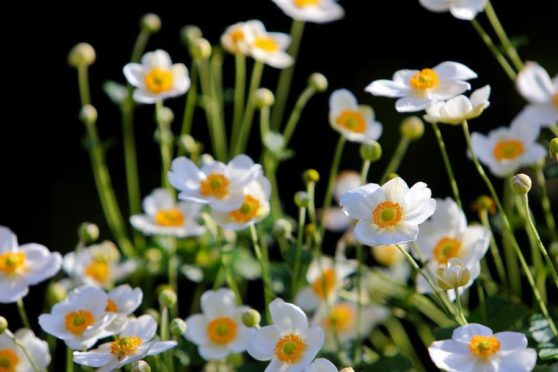
Councils across Scotland are looking to scale back their grass-cutting programmes claiming the natural look during lockdown is popular with the public.
A number of local authorities have responded to feedback on mowing grass verges and leaving wildflower areas in council-owned parks. Many had already begun examining ways to encourage wildflowers as they boost the number of pollinators such as bees which are vital to the environment.
Aberdeenshire, East Dunbartonshire, Fife, Edinburgh, Falkirk and Aberdeen are among those looking to make the change.
An initiative in Falkirk will see the creation of 35 pilot sites, including verges, where more trees and flowers will be planted and the grass will be cut less often.
Critics suggest the move is linked to spending cuts but the council’s biodiversity expert, Anna Perks, said: “By changing how we manage our grasslands in the Falkirk area, we’re doing what we can to make good on our commitment to saving our environment.”
Aberdeen City Council is working to reduce the amount of grass-cutting as part of a strategy to maintain areas in a more natural way. A public consultation in Edinburgh showed that 96% of respondents agreed that biodiversity should be included in the management programme for parks and green spaces.
Edinburgh City Council said: “Through the consultation there were numerous responses praising grass not being cut as frequently, attracting plants and wildlife.”
Wildlife groups say reducing mowing schedules or leaving them uncut is particularly beneficial to biodiversity, and last year The Sunday Post told how Buglife was calling for the changes to be made.
Debbie Bassett, biodiversity strategy manager at NatureScot, said the reduction in mowing verges and amenity grass areas during the pandemic had boosted insects, wildlife and people’s spirits.
She said: “We’ve had lots of contact from local authorities because citizens have been asking for the mowing regime to be changed now because they like all those wildflowers and they like having it on their doorstep.
“It’s good for insects but it’s also good for people. It’s cheery and it makes you feel better.
“People are now making their voices heard to say that actually this is how we want it to be in the future, not just while lockdown is going on and not just while you couldn’t get out and mow the grass.”
But the reduction of grass-cutting was not universally popular, particularly in parks and amenity areas.
Shetland Islands Council received several complaints about parks not being mowed during lockdown, as did Western Isles Council.

Enjoy the convenience of having The Sunday Post delivered as a digital ePaper straight to your smartphone, tablet or computer.
Subscribe for only £5.49 a month and enjoy all the benefits of the printed paper as a digital replica.
Subscribe